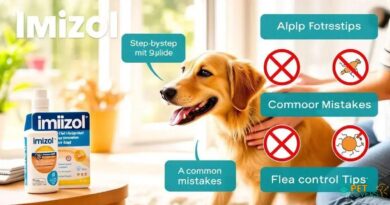What is food allergies
What Are Food Allergies in Dogs?
Food allergies in dogs occur when their immune system mistakenly identifies a certain food ingredient as harmful. This can lead to various symptoms, including skin irritations, gastrointestinal issues, and even behavioral changes. Understanding what food allergies are is crucial for dog owners, as it helps in identifying the right diet for their furry friends.
Common Symptoms of Food Allergies
The symptoms of food allergies in dogs can vary widely, but some of the most common include itching, redness of the skin, ear infections, and gastrointestinal disturbances such as vomiting or diarrhea. These symptoms can often be confused with other conditions, making it essential for pet owners to consult a veterinarian for a proper diagnosis.
How Food Allergies Develop
Food allergies typically develop after a dog has been exposed to a particular food ingredient multiple times. The immune system becomes sensitized to the protein in the food, leading to an allergic reaction upon subsequent exposures. This process can take time, and many dogs may not show symptoms until they are older.
Common Food Allergens for Dogs
Some of the most common food allergens for dogs include beef, chicken, dairy, wheat, and soy. Each dog is unique, and what may cause an allergic reaction in one dog may not affect another. Identifying the specific allergen is crucial for managing food allergies effectively.
Diagnosing Food Allergies in Dogs
Diagnosing food allergies in dogs often involves a process of elimination. Veterinarians may recommend an elimination diet, where the dog is fed a limited ingredient diet for several weeks to see if symptoms improve. If the symptoms resolve, specific ingredients can be reintroduced one at a time to identify the allergen.
Managing Food Allergies
Once a food allergen has been identified, managing food allergies in dogs typically involves avoiding the offending ingredient. This may require switching to a hypoallergenic dog food or preparing homemade meals that do not contain the allergen. Regular consultations with a veterinarian can help ensure that the dog’s nutritional needs are met.
The Role of Hypoallergenic Dog Food
Hypoallergenic dog food is specifically formulated to reduce the risk of allergic reactions. These diets often contain novel proteins and carbohydrates that are less likely to trigger allergies. Many pet owners find success in managing their dog’s food allergies by transitioning to these specialized diets.
Importance of Reading Labels
For dog owners managing food allergies, reading ingredient labels is essential. Many commercial dog foods contain hidden allergens, and understanding what goes into your dog’s food can help prevent allergic reactions. Look for products that clearly list their ingredients and avoid those with vague terms like “meat by-products.”
Consulting a Veterinarian
If you suspect your dog has food allergies, consulting a veterinarian is crucial. They can provide guidance on the best course of action, recommend appropriate diets, and help monitor your dog’s health. A veterinarian’s expertise is invaluable in ensuring your dog remains healthy and happy while managing food allergies.



